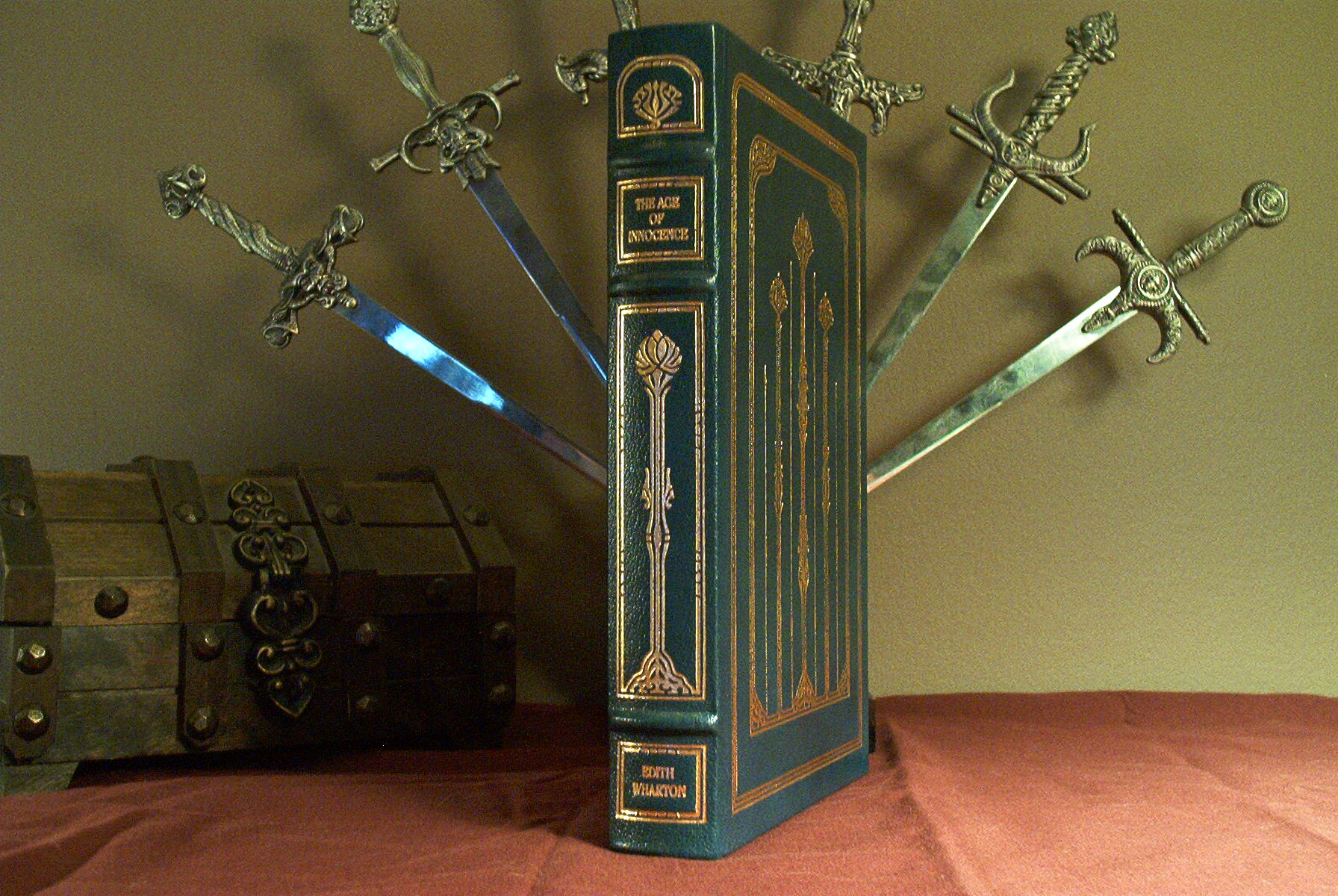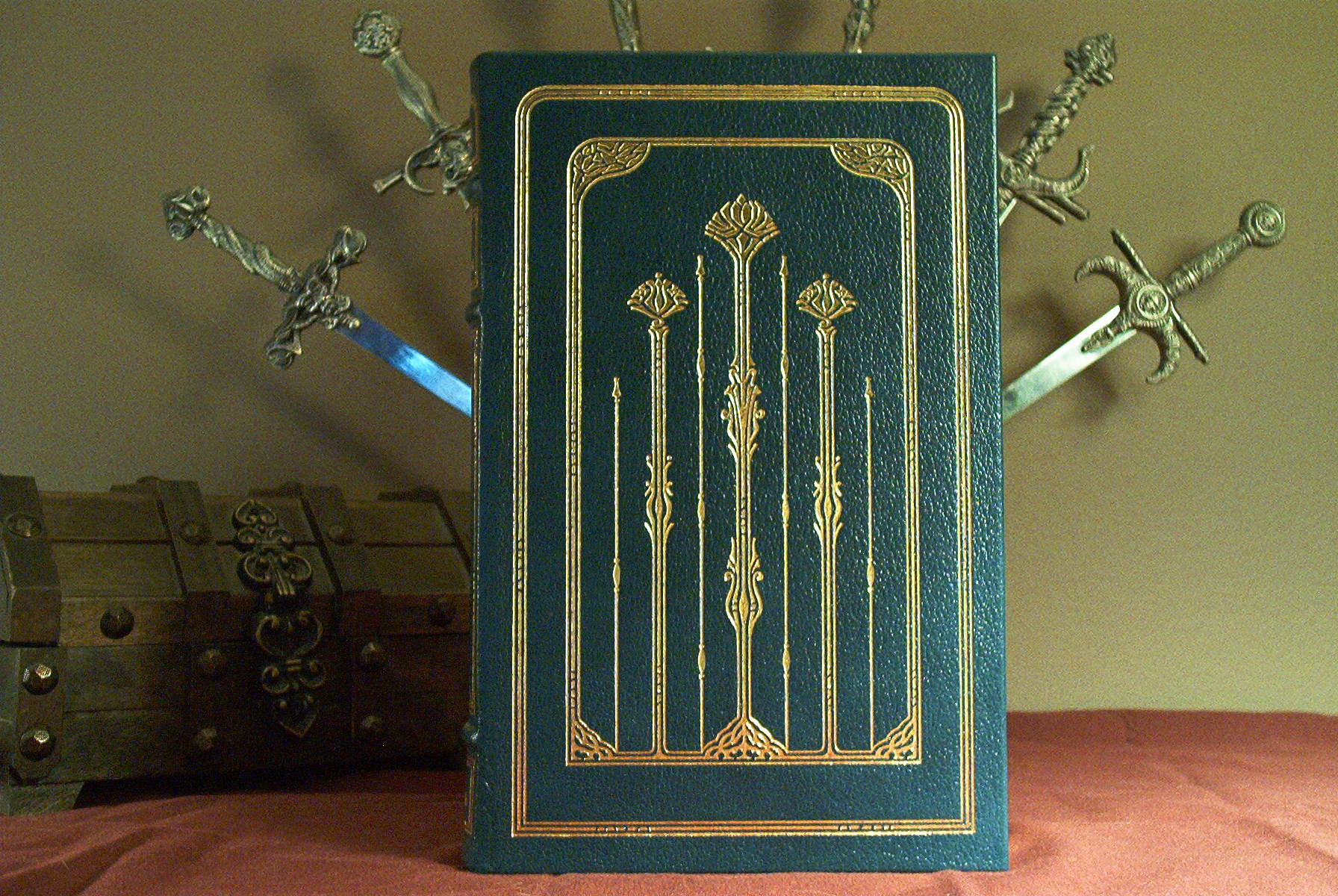Easton Press Edith Wharton books
Ethan Frome - The Collector's Library of Famous Editions - 1967The Age of Innocence - The Collector's Library of Famous Editions - 1973
House Of Mirth - 1981
4 volume matching set - 1994 - including titles:
The Age of Innocence
Old New York
Ethan Frome
House of Mirth
Franklin Library Edith Wharton books
The Age of Innocence - 100 Greatest Masterpieces of American Literature - 1977
House Of Mirth - 1981
4 volume matching set - 1994 - including titles:
The Age of Innocence
Old New York
Ethan Frome
House of Mirth
Franklin Library Edith Wharton books
The Age of Innocence - 100 Greatest Masterpieces of American Literature - 1977Twenty Two Stories by Edith Wharton - Collected Stories of the World's Greatest Writers - 1982
The Age of Innocence - 20th Century's Greatest Books - 1982
The Age of Innocence - Pulitzer Prize Classics - 1984
The Age of Innocence - 20th Century's Greatest Books - 1982
The Age of Innocence - Pulitzer Prize Classics - 1984
Writer Edith Wharton
Edith Newbold Jones Wharton, born on January 24, 1862, in New York City, was a preeminent American novelist, short story writer, and designer, celebrated for her keen insights into the complexities of human relationships and the social mores of the Gilded Age. With a distinguished literary career spanning over four decades, Wharton left an indelible mark on American literature, earning acclaim for her vivid characterizations, astute social commentary, and elegant prose. Born into a wealthy and socially prominent family, Wharton grew up in an environment steeped in privilege and refinement. From an early age, she demonstrated a love for literature and storytelling, immersing herself in the works of classic authors such as Shakespeare, Dickens, and George Eliot. Despite societal expectations for women of her class, Wharton pursued her intellectual passions with vigor, devoting herself to the pursuit of knowledge and creative expression. In 1885, Wharton married Edward "Teddy" Wharton, a Boston banker, and settled into a life of relative comfort and luxury. However, it was during this period that Wharton's literary ambitions began to take shape. Encouraged by her husband and guided by her own prodigious talent, she embarked on a writing career that would soon garner widespread acclaim and recognition.Wharton's literary debut came in 1897 with the publication of her first novel, The Decoration of Houses, co-authored with architect Ogden Codman Jr. This work on interior design and architectural principles established Wharton as an authority on matters of taste and aesthetics, foreshadowing her later explorations of social class and cultural norms in her fiction. However, it was with her novels and short stories that Wharton truly distinguished herself as a writer of unparalleled skill and sophistication. Her breakthrough novel, The House of Mirth (1905), a scathing indictment of New York's high society and its corrosive effects on the individual, catapulted her to literary stardom. The novel's protagonist, Lily Bart, remains one of literature's most memorable and tragic heroines, emblematic of Wharton's penetrating insights into the human psyche. Wharton's subsequent novels, including Ethan Frome (1911), The Age of Innocence (1920), and The Custom of the Country (1913), further solidified her reputation as a master storyteller and chronicler of American society. The Age of Innocence, in particular, earned Wharton the Pulitzer Prize for Fiction in 1921, making her the first woman to receive this prestigious honor. In addition to her fiction writing, Wharton was a prolific author of short stories, essays, and travel narratives, showcasing her versatility and literary range. Her works often explored themes of love, marriage, duty, and ambition, offering incisive critiques of the constraints imposed by societal conventions and gender roles.
Throughout her life, Wharton remained deeply engaged with the cultural and political issues of her time, advocating for social reform and women's rights. She was also a passionate supporter of the Allied cause during World War I, contributing her time and resources to humanitarian efforts in France. Edith Wharton's literary legacy continues to resonate with readers around the world, inspiring generations of writers and scholars with her profound insights into the human condition. Her writings, characterized by their elegance, intelligence, and emotional depth, stand as enduring testaments to the power of literature to illuminate the complexities of the human experience.
Wharton passed away on August 11, 1937, but her influence lives on, as her works continue to be celebrated and studied for their timeless relevance and enduring beauty. As one of the greatest writers of the 20th century, Wharton's legacy remains secure, ensuring her rightful place among the pantheon of American literary giants.


Comments
Post a Comment
Share your best book review and recommendation